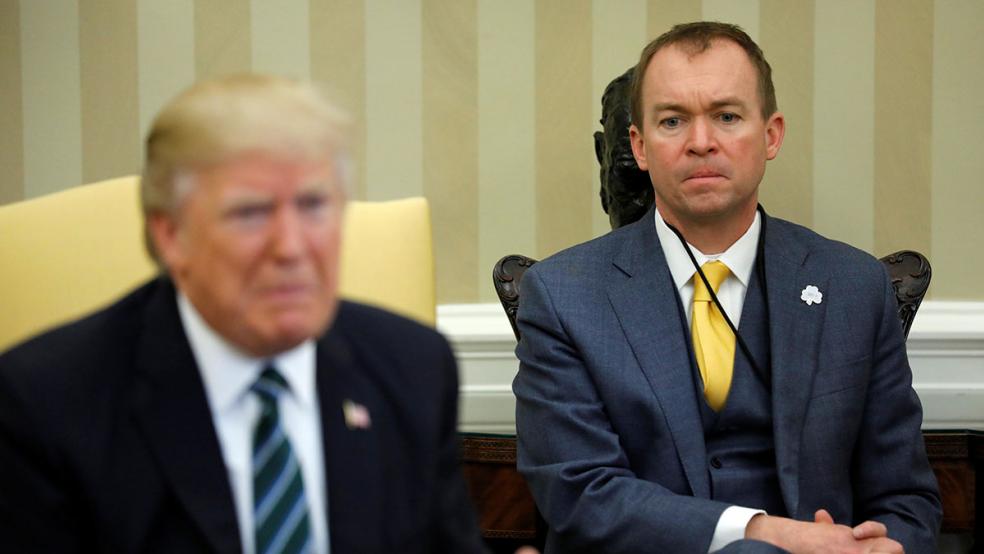Mick Mulvaney, the acting White House chief of staff, has a reputation as a fierce conservative hawk on federal spending — or at least he did before he joined the Trump administration.
The Atlantic’s Elaina Plott and Peter Nicholas report that Mulvaney is well aware “that Donald Trump’s administration doesn’t always make good on conservative ideals”:
“He knows that they’re ‘spending a bunch of money on stuff we’re not supposed to,’ and that all the excess doesn’t comport well with his own reputation as a fiscal hawk and Tea Party darling during his congressional days …”
“But the spending hasn’t escaped his notice—nor that of his old conservative colleagues in the House. One of them had actually ‘accused me of “losing,”’ Mulvaney recalled, after the White House signed a massive spending package. The colleague, Mark Meadows, ‘said, ‘It sounds like my friend Mick Mulvaney is not winning on some of the fiscal issues down at the White House.’’ But Mulvaney had a retort that underscores how he’s come to define success. ‘I told him, ‘Yeah, but at least I’m losing at the very highest levels.’’”
Mulvaney “was quick to wave off any of the administration’s perceived shortcomings,” Plott and Nicholas write, casting the blame for higher spending and debt on Congress:
“Mulvaney insisted that’s the Republican Party’s fault, not the president’s—lawmakers, he said, are voting for bills that they themselves admit spend way too much money. ‘Tell me how the president is supposed to be fiscally conservative against that backdrop,’ Mulvaney said. ‘So yeah, we spend too much money. But the president by himself can’t change that.’”
Mulvaney also said that “the ball really is in Democrat’s court” on whether they can, or are willing to, reach deals with Trump on his renegotiated trade deal with Mexico and Canada or infrastructure. If they fail to make progress on those priorities, Mulvaney said, “it could be a slow couple of years.”





